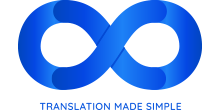
How should we register 'pre-invoicing'?
As we near the end of the year, some of our clients ask us to invoice an amount before the work is actually done (or even started).
What is the best way to do this without messing up reporting and other checks?
I imagine we could create an invoiced based on a 'dummy' task, or even with just items, and mark future 'real' tasks as uninvoiceable, but it seems a bit messy and prone to confusion and mistakes. Also, it would highly likely mess up reporting.
Are there better ways to do this?
Answer

Why would you do a dummy Task on an invoice, if you can actually put any Task on it, started or not.
Invoiceability is in your head, if I may say so:) You can invoice anything at any stage of its lifecycle.
XTRF by default will suggest Closed Tasks, but this is merely a hint, not a requirement.
If you don't know what they need an invoice, though, because there is no project yet, that's a slightly different story. If you need it to check out in the end, you will have to have an empty Task (uninvoiceable or zero Receivables) after all.

Isn't this where you use the Pre-Payment feature so there is an XTRF credit against the future work?

Mark is right. If you know exactly the amount of the future project you can invoice it upfront.
But if you're unsure about the exact values and it is actually a credit, you can use the prepayment.
All you need to have is a project for the client, it doesn't have to have any language combinations or tasks, the project level itself is enough to add prepayment and then invoice it in a regular way.
Then you can freely add tasks to this project and create invoices for those tasks. The system will remember that there's a prepayment and it will be cleared on the final invoice.

Thank you both!
I had been looking into the prepayment feature, but couldn't yet get my head around it.
One more question: if we create an invoice for the prepayment, and then also invoices for the tasks that are added to that project, will they not be counted twice when we look at the invoiced total in reporting (both on the prepayment invoice and on the 'regular' invoices)?

OK, I did some more testing and I think I understand how it works now. I added a prepayment to the project, then created tasks with receivables. Then when I created an invoice for those new tasks, a popup appeared where I could assign the prepayment and an extra credit line appeared on the invoice, making the invoice total zero.
Pretty nifty - thank you XTRF :-)

Hi,
Following on from this thread, is it possible in XTRF to use pre-payment invoicing to handle staged invoicing of a project?
In this case, we want to set up an invoicing schedule in three stages according to client requirement: upfront 30% (no work started yet), mid-way 35%, final 35% - how could that be handled in the same project in XTRF?
If I read the above posts correctly, the behaviour would be:
- Pre-payment invoice - sent to client and paid
- add tasks and invoices as work is carried out and these will effectively be cancelled out by the prepayment invoice
- what happens if the value of tasks exceeds the prepayment amount? Can the remainder be added to invoice 2?
- For invoices 2 and 3, invoice "as normal" in the project according to tasks ready to be invoiced?
Does XTRF only allow for one pre-payment and one final invoice?
What about a scenario where the tasks value won't necessarily amount to the % of project value that client wishes to be invoiced on? Can you create multiple "pre-payment" invoices in one XTRF project or would we need to handle as separate projects and use the pre-payment feature to effectively invoice a certain amount at a certain time according to client schedule?
Thanks for additional insight into managing various invoicing schedules!
Customer support service by UserEcho


Mark is right. If you know exactly the amount of the future project you can invoice it upfront.
But if you're unsure about the exact values and it is actually a credit, you can use the prepayment.
All you need to have is a project for the client, it doesn't have to have any language combinations or tasks, the project level itself is enough to add prepayment and then invoice it in a regular way.
Then you can freely add tasks to this project and create invoices for those tasks. The system will remember that there's a prepayment and it will be cleared on the final invoice.